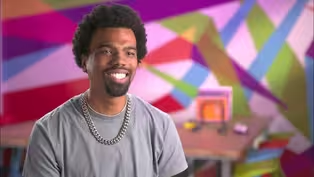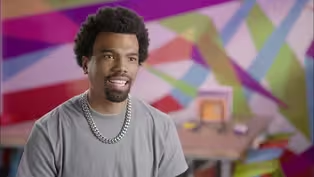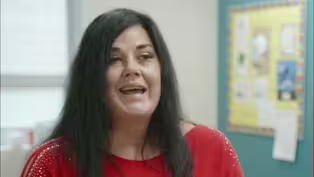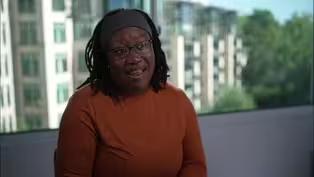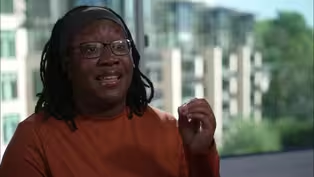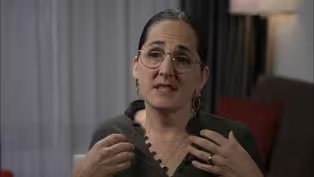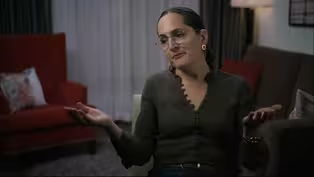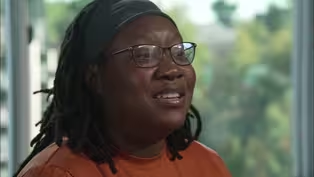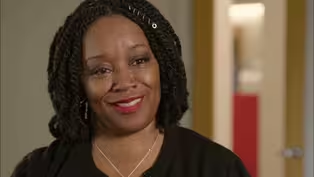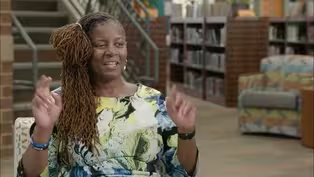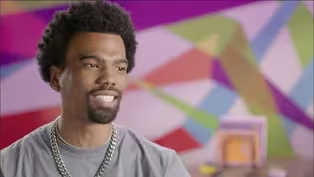Students and Mental Health
Clip | 3m 58sVideo has Closed Captions
Ellen Sorm discusses the need to address student mental health issues.
Ellen Sorm, Intervention Specialist, Akron Public Schools discusses the need to address student mental health issues as part of a holistic approach to supporting students and academic outcomes.
Problems playing video? | Closed Captioning Feedback
Problems playing video? | Closed Captioning Feedback
Students and Mental Health
Clip | 3m 58sVideo has Closed Captions
Ellen Sorm, Intervention Specialist, Akron Public Schools discusses the need to address student mental health issues as part of a holistic approach to supporting students and academic outcomes.
Problems playing video? | Closed Captioning Feedback
How to Watch
is available to stream on pbs.org and the free PBS App, available on iPhone, Apple TV, Android TV, Android smartphones, Amazon Fire TV, Amazon Fire Tablet, Roku, Samsung Smart TV, and Vizio.
[Music] we we service kids from all over all over the district and so when you look at us as a climate and a culture we're bringing the entire city together as an intervention specialist I support students with disabilities I make sure that they are receiving the services that they need I think covid was the turning point for us I really feel like that's where our mental health exploded and so now we have become more of a mental health than academics because we got to get through the mental health before we can get to the academics with these guys and Co really is what exposed that to us a lot in order to not lose academics you've got to treat the whole child so that comes with those mental health issues and addressing that with the student once you can get past the emotional part of it the mental health part of it which can look very different for each kid it's it's a case by case but once you can get past that the academics will come I mean I have students that come in here they're all amped up you know they're either angry or they're sad or their anxieties through the roof once I can get them calmed down and I can get them focused we can then work in the Gen Ed classroom with your gen ed kids it's a little bit more difficult and so that's something that as a district we're working on we're trying to reach those kids we're trying to let every kid know that they are seen and they are heard it is difficult we have a large population here we're at almost a thousand kids so it can be difficult but we really try not to let anybody fall through the cracks there's a lot of physical communication you know they'll have the heads down you can tell I mean we emotionally you can tell like if they're angry if they're sad you know you can tell those kinds of emotions it's that nonverbal communication that they give us that physical where they'll have the head down they'll be sleeping um they'll be off task whatever it may be so we really try to as an intervention specialist I'm very sensitive to that a little more so than the jna teachers and it's not it's just my training it's not anything of their own it's just what I I've been through because my children come with a whole ballow ax and so I really try to work with those kids I'll pull them out into what we have pods So within our our setting we have four classrooms and in that in that four classrooms is a pod so it's a general like space to go to and I'll pull them out there hey what's going on you know just kind of side talk them do you need something is there something I can do just to let them know like I care I see you but if this is something you need to handle and you just need to have the day off and kind to check out I get that too because I have days like that we're all human right we all have days like that where we're just not 100% And so I try to be sensitive to that in the classrooms that I'm in all of our kids really just trying to be a little more compassionate a little more empathetic to knowing that okay we know that this is a crisis these kids have been through a lot I mean when you look at my juniors they were in eighth grade when covid hit and that learning Gap and what does that look like and so maturity wise the kids are still kind of middle schoolish because they've got that year of loss of education and so we are trying to close that Gap and try to be culturally responsive to their emotional and mental health needs but we also have to get the academics in there too and so it can be a it's it's difficult it's a can of worms and it's it's really hard to pick a straw about which one it is that's the most important because each kid is so uniquely individual that what works for one kid isn't going to work for another I really try to make it like home I really try to just be warm and welcoming I try to let them come in have a voice just to help them get through whatever it is they're going through visit us online at ideast stream.org welcome for more web extras links to resources and to watch the documentary you are welcome creating safe and supportive schools a production of idea stream public media
Teachers & Students: Fostering a Sense of Belonging
Video has Closed Captions
Clip | 2m 51s | Devon Carter offers insights about the value of teachers and students learning from each other. (2m 51s)
Supporting Teachers: It Takes a Village
Video has Closed Captions
Clip | 2m 25s | Devon Carter, PhD, discusses school and community supports to connect with students. (2m 25s)
Video has Closed Captions
Clip | 3m 58s | Ellen Sorm discusses the need to address student mental health issues. (3m 58s)
Video has Closed Captions
Clip | 7m 46s | Jameela Conway-Turner, PhD discusses the importance of feeling a sense of belonging. (7m 46s)
School Discipline & Zero Tolerance Policies
Video has Closed Captions
Clip | 5m 16s | Jameela Conway-Turner explains the impact of Zero Tolerance discipline policies. (5m 16s)
School Discipline & Multi-Tiered Systems of Support
Video has Closed Captions
Clip | 4m 29s | Greta Colombi discusses school discipline and the importance of a multi-tiered system of support. (4m 29s)
Link Between Positive School Climate and Positive Outcomes
Video has Closed Captions
Clip | 2m 42s | Greta Colombi discusses the link between positive school climate and positive outcomes. (2m 42s)
Inequities in School Discipline
Video has Closed Captions
Clip | 4m 8s | Jameela Conway-Turner, PhD discusses inequities in school discipline. (4m 8s)
Importance of Listening to Student Voices
Video has Closed Captions
Clip | 2m 26s | Dreama Mason Whitfield discusses the Scholar Voice/Student Voice project in Akron Public Schools. (2m 26s)
Culturally Responsive Teaching & Building Relationships with Students
Video has Closed Captions
Clip | 2m 34s | Constance Smith-Clemens discusses the value of applying culturally responsive teaching practices. (2m 34s)
Cultural Competency & Culturally Responsive Teaching
Video has Closed Captions
Clip | 1m 51s | Devon Carter, PhD discusses culturally responsive teaching practices. (1m 51s)
Providing Support for PBS.org
Learn Moreabout PBS online sponsorship
- News and Public Affairs

Top journalists deliver compelling original analysis of the hour's headlines.

- News and Public Affairs

FRONTLINE is investigative journalism that questions, explains and changes our world.












Support for PBS provided by:
